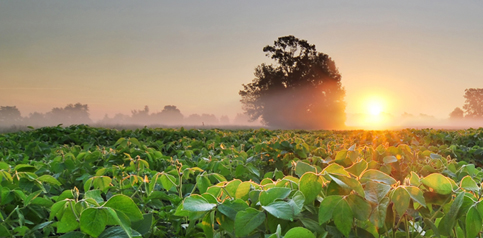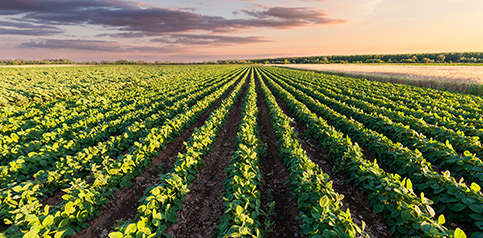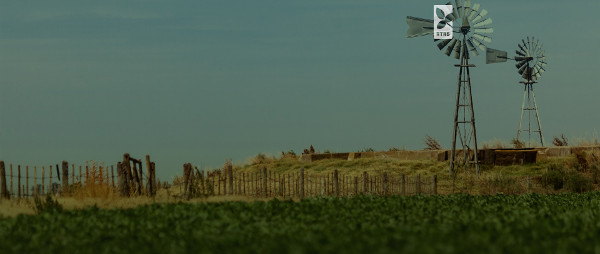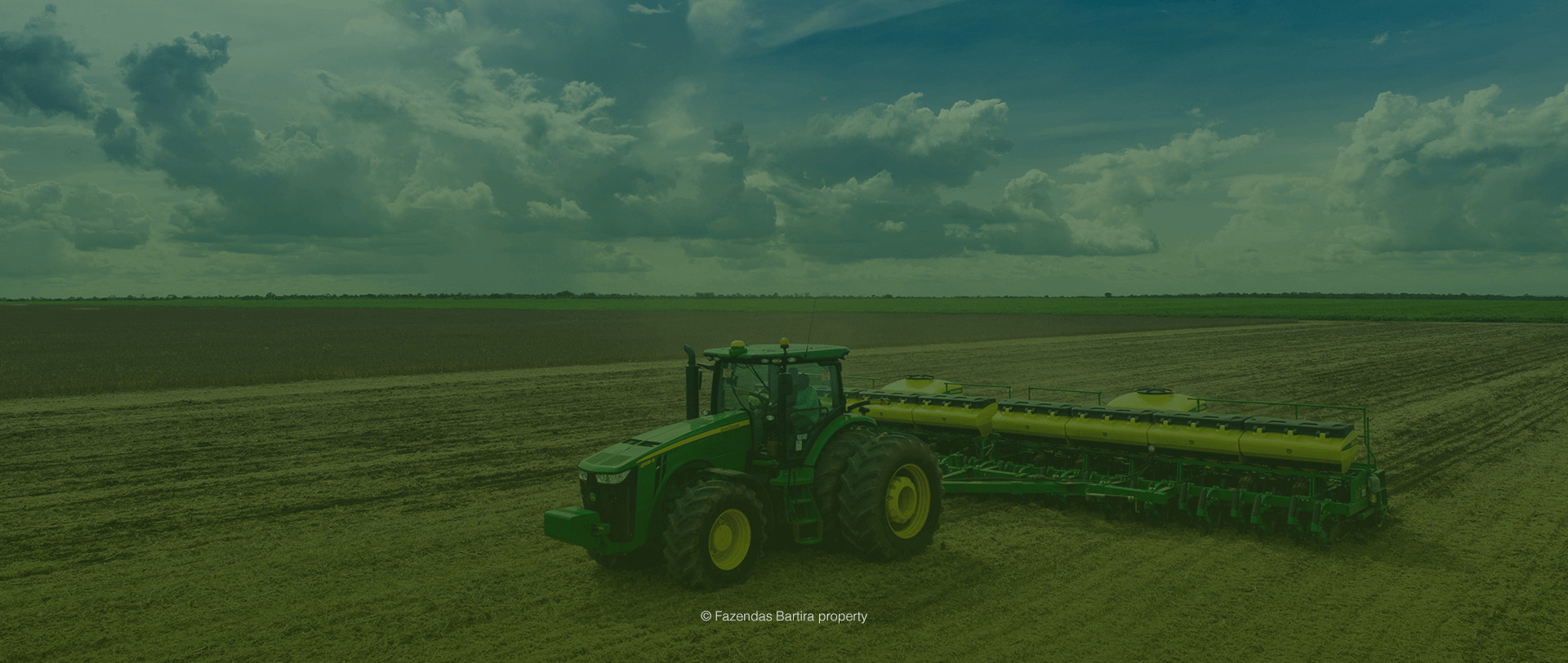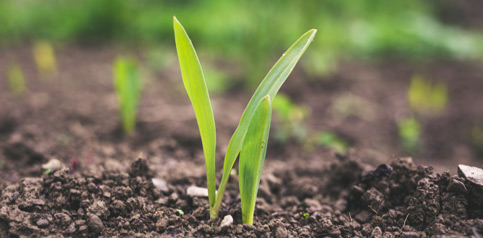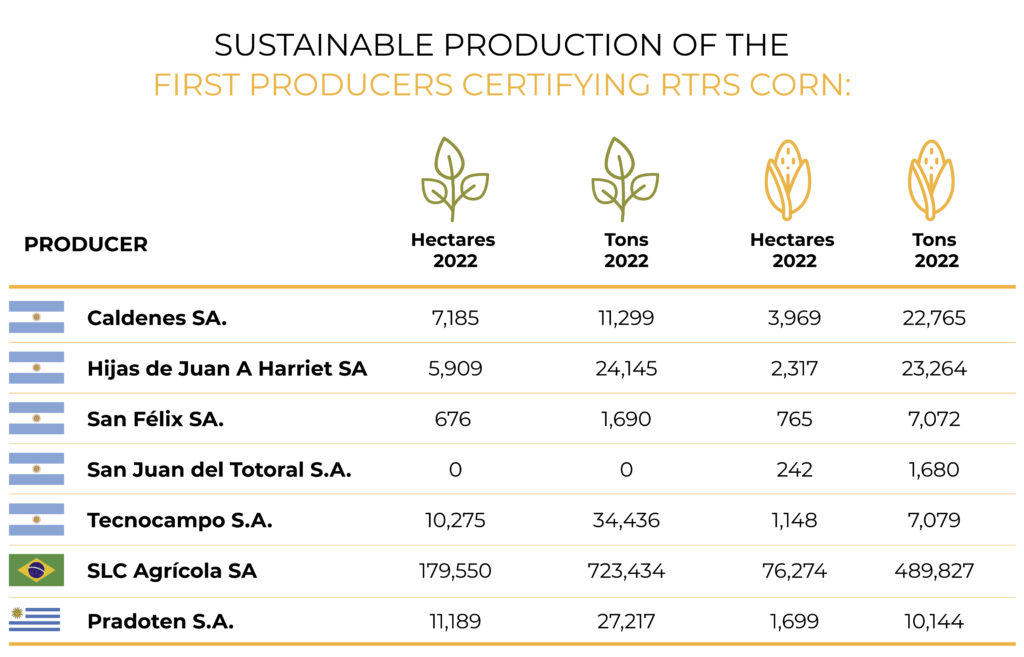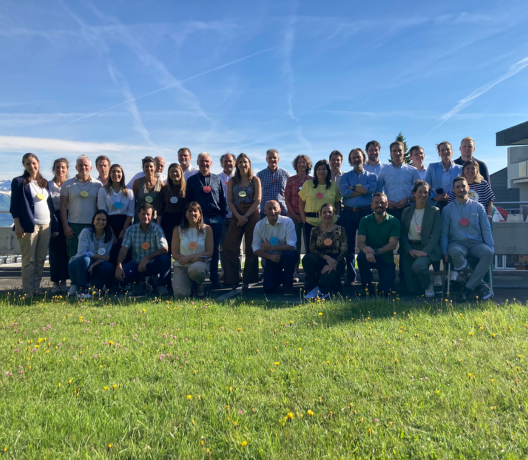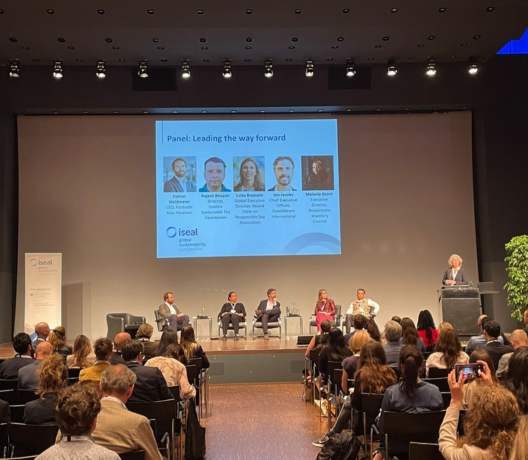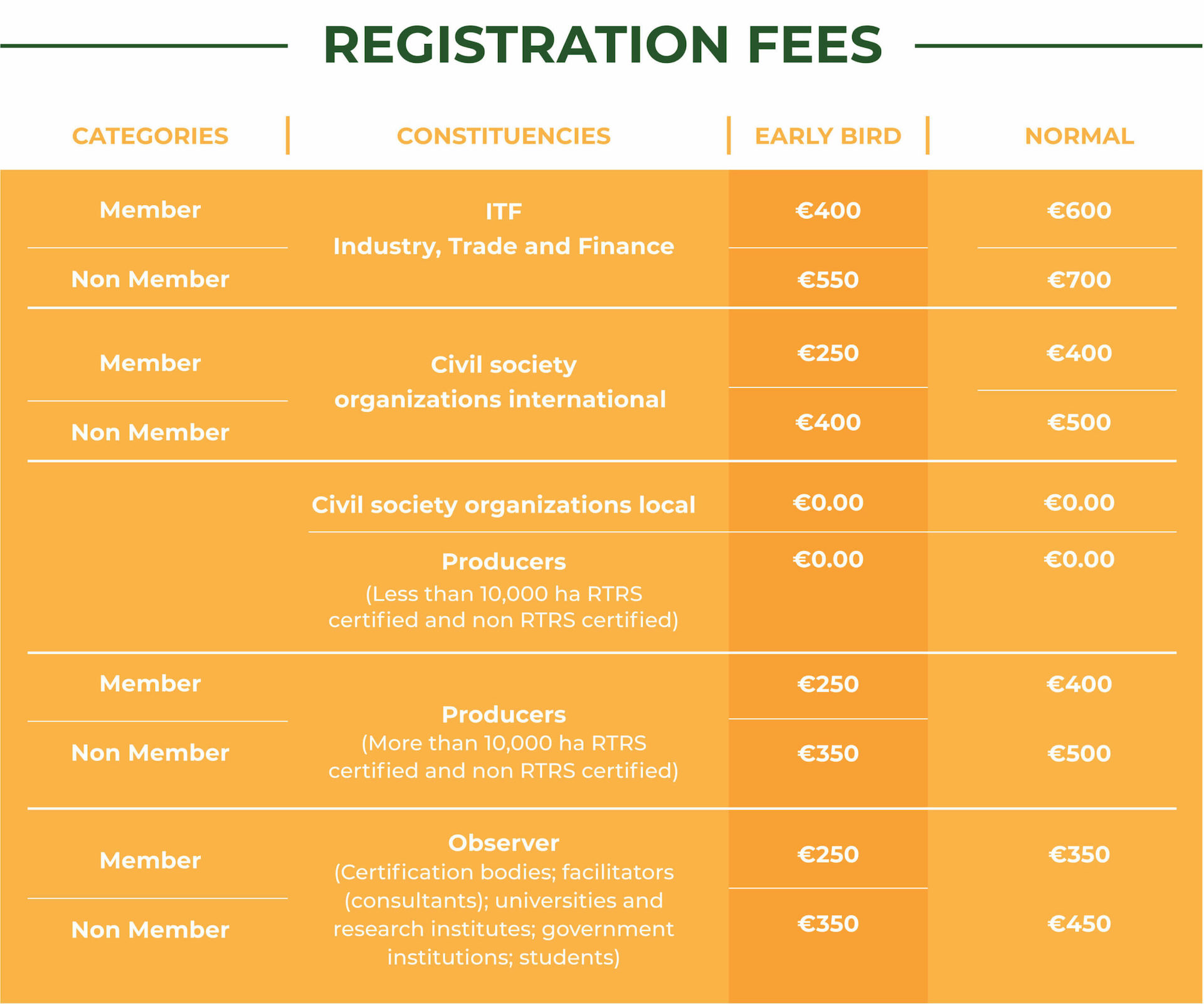First half million tons of RTRS certified corn
Following the launch of the RTRS Standard for Responsible Corn Production in December 2021, seven RTRS soybean farmers certified their corn production
Between August and November, seven RTRS soybean producers certified their corn production against the RTRS Standard for Responsible Corn Production (RTRS Corn Standard). They are Caldenes S.A., Hijas de Juan A Harriet SA, San Félix S.A.; San Juan del Totoral S.A. and Tecnocampo S.A. from Argentina, SLC Agrícola SA from Brazil and Pradoten S.A. from Uruguay. They represent in total 86,414 hectares and 561,831 tons of certified corn.
The RTRS Corn Standard was launched in December last year. Most of the sustainability requirements provided for in the RTRS Standard for Responsible Soy Production are applicable to corn and that is why RTRS decided to go ahead with the integration of a soy/corn certification system.
In Argentina, Tecnocampo S.A., has been certifying its soybean production since 2014. Production Manager Andrés Laxague points out that “including other rotation crops within our certified production seemed to us the best way to continue growing in sustainable agriculture”. Francisca Llorens, Head of Production Quality, adds that “the 14 indicators of the RTRS Corn Standard, which are added to the 108 required by the RTRS Soybean Standard, are compatible with the main sustainable corn production practices expected from every farmer“.
For San Félix S.A., and in the words of Antonio de Nevares, one of its representatives, the main motivation that drove the company to obtain RTRS certification for its corn production was the possibility to take a commercial opportunity. “The corn certification process itself did not mean for San Félix S.A. any additional effort in terms of production, because when evaluating the new requirements we found that we already complied with them before certifying. We only extended the considerations of management indicators and implemented some new processes, for example, additional machinery cleaning records”, adds Javier Pepa, San Felix S.A. Consultant.
On its part, San Juan del Totoral S.A. an RTRS certified producer since 2021, found in corn certification a new opportunity for improvement: “Certifying against RTRS corn allowed us to confirm we continue to be aligned to the economically, environmentally and socially sustainable production that has always been part of our DNA”, says Gastón Bottaro, Director of San Juan del Totoral S.A.
According to Bottaro, in general terms, the corn certification process simply involved adapting the records of the planting and harvesting procedures they had for soybeans: “For example, for the planting procedure, we kept records of shelters and technological tools for insect control and for harvesting practices, we kept record of the devices used for cleaning equipment to avoid fires and the spread of weeds that are difficult to control,” Bottaro explains.
In the case of Caldenes S.A. a certified RTRS soybean producer for more than 10 years, the inclusion of corn certification represented an additional benefit because they supply feed for their own livestock production: “Corn certification allows us to demonstrate that our animals are fed with corn produced under an internationally recognized standard complying with sustainable agricultural, environmental and social practices,” says Gustavo Soto, Head of Agricultural Production, Forage and Certifications.
As stated by Álvaro Dilli, Sustainability Manager at Brazilian company SLC Agrícola S.A., the main motivations behind corn certification were the possibility to supply the domestic market as well as increasing the company’s capacity to meet the demands of its foreign customers, but at the same time he emphasizes that “it meant for us the opportunity to expand our certification scope to other commodities and to take advantage of the synergy between both products, soybean and corn, at the time of the audit”.
Pradoten S.A., in Uruguay, decided to implement corn certification, among other reasons, to ensure compliance with the standards established by the Ministry of Livestock, Agriculture and Fisheries of their country. “Land use and management plans required by the government made us increase the share of corn in the soybean rotation,” says Tomás Ciceri, Head of Certifications and Production Management Supervisor. Pradoten’s experience illustrates how the integration of voluntary certification systems can serve as complementary tools to the sustainability objectives and requirements established by governments.
In addition, regarding the certification and auditing process Gonzalo Durán, Pradoten S.A. Production Manager mentions that certifying corn production did not require them to take any extra measures beyond those they already had in place. “For example, one of the issues checked in the audit were fire prevention measures during harvesting, which were perfectly in order because they include the same machines used in soybean harvesting”, adds Gonzalo.
The first experiences in RTRS corn certification confirm the value of creating synergies and opportunities with producers and demonstrate it is feasible to capitalize on the sustainability achievements made by soy certification and to continue the sustainable production process by extending soybean certification to a rotation crop. We celebrate that we are already seeing the first results.
Discover in this video the development and features of the new Standards
Related article:
–RTRS presents its new Standards for Responsible Soy and Corn Production


